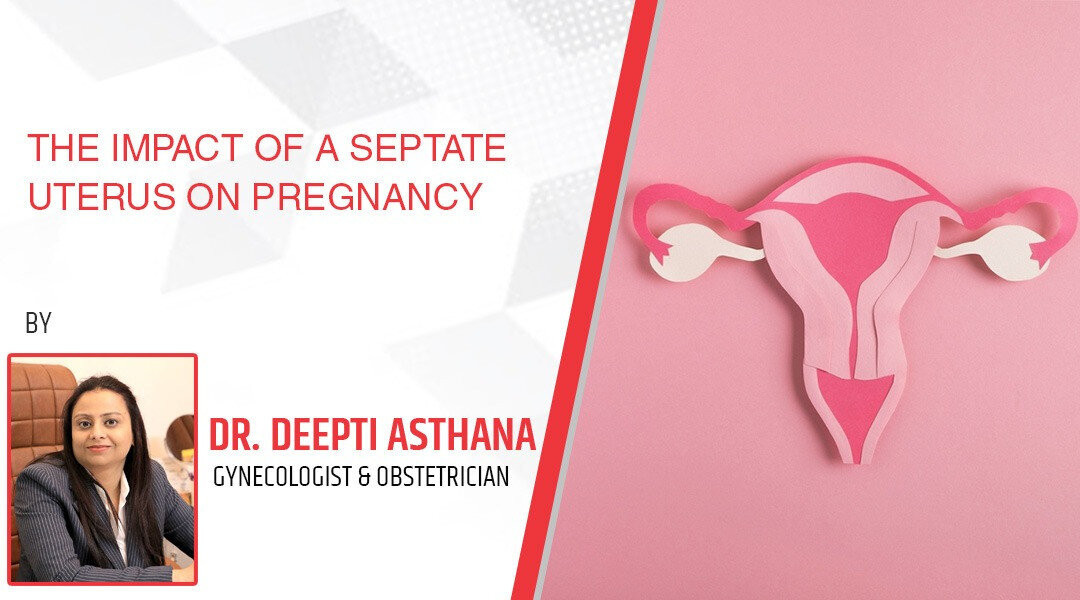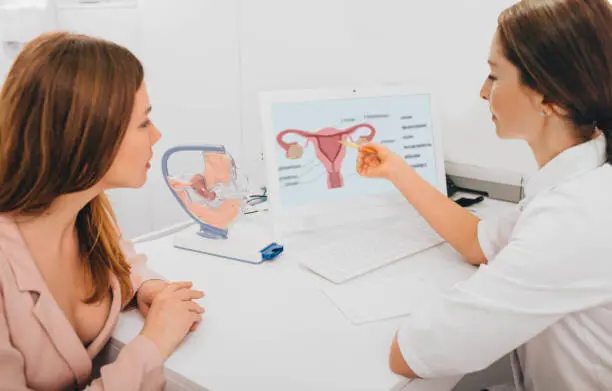
Table of Contents
If you’re pregnant, or hoping to become pregnant, you may have heard of a septate uterus. This is a condition where the uterus is divided into two separate compartments by a wall of tissue. In this blog post, we’re going to take a closer look at the impact of a septate uterus on pregnancy. We’ll discuss how it can affect both the mother and the child, as well as the risks and complications that can arise. We’ll also touch on some of the treatment options and long-term effects.

What Is A Septate Uterus?
What is a septate uterus? A septate uterus is a type of congenital Mullerian anomaly where there is a partial or complete fusion of the uterine septum. This can lead to problems with fertility, recurrent miscarriages, preterm labor, and abnormal placentation. Septate uteri are found in about 1% of women. There are two types of septate uteri: complete and partial. A complete septate uterus has no communication between the two halves of the organ, while a partial septate uterus has some communication.
Complete septate uteri are rarer than partial septa but can be more complicated to diagnose due to their rarity. They often require surgery in order to correct the problem, which can result in infertility or other complications down the line, such as recurrent miscarriages or preterm labor. Partial septa are less common but also pose more risks because they lack proper communication between the two halves of the womb, which can increase the risk of premature birth and other complications during high-risk pregnancy and childbirth.
How Does A Septate Uterus Impact Pregnancy?

Septate uteri are a type of uterus that can cause problems during pregnancy. These problems can include difficulty with implantation and early pregnancy loss, as well as increased risk for preterm labor and low birth weight babies. Septate uteri may also impact the position of the placenta and lead to placental abruption. This is a serious complication that can require surgery to correct. If you are pregnant and have a septate uterus, it is important to speak with your healthcare provider about your risks and potential treatments.
There is some evidence that septate uteri may be more likely to develop problems during pregnancy. This is because the cervix and uterus can become blocked, which can prevent the baby from getting enough oxygen and nutrients. In addition, a septate uterus can impact the position of the placenta. This can lead to complications such as preterm labor and low birth weight babies.
If you are pregnant and have a septate uterus, it is important to speak with your healthcare provider about your risks and potential treatments. There are several options available to help reduce these risks. Your healthcare provider may recommend medications or surgery to help improve your chances of a healthy pregnancy.
How Can You Prevent Complications If You Have A Septate Uterus During Pregnancy?
Septate uterus is a common cause of infertility and can lead to complications during pregnancy, including increased risks for miscarriage, preterm labor, and placental abruption. In order to reduce the risk of these complications, pregnant women with a septate uterus should get early prenatal care and follow other guidelines that are specific to their particular situation. Some things that pregnant women with a septate uterus can do to reduce their risks include quitting smoking, avoiding exposure to secondhand smoke, getting regular exercise, and eating a balanced diet.

There are a few things that pregnant women with a septate uterus can do to reduce their risks for complications. First, they should get early prenatal care to identify any potential health problems and get treatment if necessary. Second, they should follow other guidelines that are specific to their particular situation. For example, pregnant women with a septate uterus should avoid exposure to secondhand smoke, get regular exercise, and eat a balanced diet. These measures will help protect them from some of the increased risks of miscarriage, preterm labor, and placental abruption that occur when they have a septate uterus.
What Are The Treatment Options For A Septate Uterus During Pregnancy?
A septate uterus is a birth defect that can impact pregnancy. If left untreated, a septate uterus can cause serious health problems for the mother and her baby. There are several treatment options available to pregnant women with a septate uterus, and all of them have potential benefits.
The most common treatment option is surgery. This involves removing the parts of the womb that are not connected (the septa). The surgery may also involve repairing or replacing damaged tissue. Surgery is usually successful in fixing the problem and improving the chances of a successful pregnancy.
Another treatment option is medication. Pregnant women with a septate uterus may be prescribed medications to help improve their reproductive health. These medications can include hormones, antibiotics, or other treatments. Medications can be helpful in fixing the problem and improving fertility prospects for future pregnancies. However, they do not always work as intended, so it’s important to discuss any possible side effects with your doctor before starting treatment.
What Are The Long-Term Effects Of Having A Septate Uterus On Pregnancy?
Having a septate uterus can have long-term effects on pregnancy, such as a reduced chance of getting pregnant, a higher risk for miscarriages and ectopic pregnancies, and an increased risk for preterm labor and low birth weight babies. It is important to know these risks so that you can make the best decision for your health and that of your unborn child.
There are a few ways to reduce the risks associated with having a septate uterus. If you are planning to get pregnant, it is important to discuss your options with your doctor. Some women have successful pregnancies after having surgery to remove the septum or divide the uterus into two parts. Others choose to use contraception or rely on natural methods of birth control, such as using oral contraceptives or condoms during sex without involving the male partner. It is also important for women with a septate uterus to receive regular prenatal care from their doctors in order to monitor their health and ensure that they are getting all of the information they need about pregnancy and childbirth.
Final Thoughts
A septate uterus can cause serious problems during pregnancy, but there are treatments available to help. If you are pregnant and have a septate uterus, it is important to speak with your healthcare provider about your risks and potential treatments. There are several options available to help reduce these risks. The best Gynecologist may recommend medications or surgery to help improve your chances of a healthy pregnancy.
Don’t wait for the situation to get worse. Start caring about yourself and Book an appointment with us today!



Leave a Reply